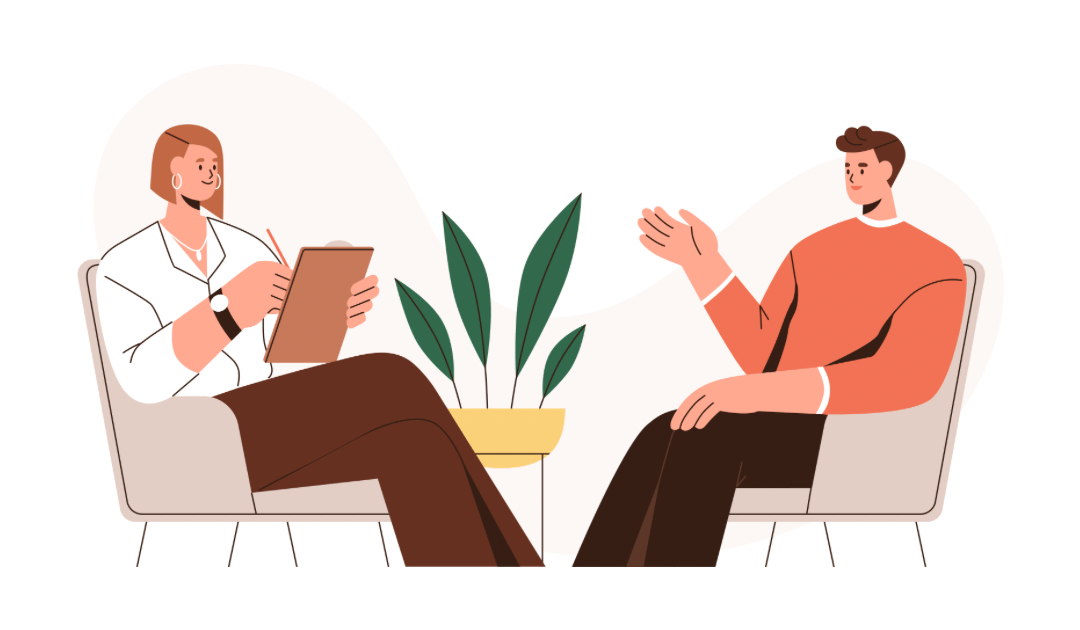According to WHO, mental health conditions now cause 1 in 5 years lived with disability. Around 20% of the world’s children and adolescents have a mental health condition, with suicide the second leading cause of death among 15-29-year-olds. Approximately one in five people in post-conflict settings have a mental health condition. Close to 60 to 70 million people in India suffer from common and severe mental disorders. India is the world’s suicide capital with over 2.6 lakh cases of suicide in a year. WHO statistics say the average suicide rate in India is 10.9 for every lakh people. WHO estimates that the burden of mental health problems in India is 2443 disability-adjusted life years (DALYs) per 100 00 population; the age-adjusted suicide rate per 100 000 population is 21.1. The economic loss due to mental health conditions, between 2012-2030, is estimated at USD 1.03 trillion. Determinants of mental health include individual attributes such as the ability to manage one’s thoughts, emotions, behaviours and interactions with others. In addition, social, cultural, economic, political and environmental factors have a role to play as do specific psychological and personality, and genetic factors.
Managing mental health disorders may be isolating, perplexing, and intimidating, particularly in this dynamic environment. However, compared to medication or not seeking any treatment at all, research indicates that seeking help for mental health illnesses in terms of counseling or therapy can help relieve mental disease symptoms over the long run.
This is due to the fact that addressing the issues actively demonstrates that people are capable of addressing their symptoms and provides them with coping mechanisms and long-term mental health management techniques.
So the question you’re likely asking yourself is: do I need counseling?
Do I need Counseling?
For some people, the idea of needing therapy sessions might be frightening. There is a lot of stigma associated with the kinds of individuals that go to counselors, but there is nothing wrong with admitting when you need extra help that you cannot get from the people in your life. Anyone who wants to strive toward living their best life may benefit greatly from counseling, but in order to get the help you want, it is crucial to first become self-aware.
Whether that is stress, anxiety, emotional trauma, or depression, if mental health is disrupting your daily life, it may be time to look into new strategies to manage it better. Not only that, if you are aspiring for a goal, but stuck in a way that it seemed that all doors are closed, counseling will enable you find the key. It is important to understand what is stopping from achieving your goal, or what is troubling in terms of stress or anxiety. Your counselor will be able to open those aspects of your persona, that needs love, healing and care. No doubt this might be uncomfortable for some, while it would become relieving to share your stories to someone (counselor here) who is not going to judge you and give unconditional support in your healing journey.
A counselor develop a personalized action plan for you to address your mental health issues. It also teaches you ways to cope and gives you tools to help you manage outside of your sessions.
If you would want lifelong strategies that will help you manage with bad feelings in the future and if you have had trouble coping with family concerns, the termination of a relationship or employment, divorce, relationship challenges, or parenting issues, you might think about counseling.
The common misconception that you should avoid before taking counseling is “I am becoming crazy or psycho”, “if my friends find out that I am visiting a counselor or a therapist or a coach, they will laugh at me”. Most of the time, this sort of self-stigma prevents us from seeking help. Some of us are in denial mode, that we know what is best for us and keep repeating the mistakes for ages. This is one of the most common reasons that people don’t grow in their life and remain stagnant until they realize it is too late.
When Should I attend Counseling or Coaching?
In a nutshell, when you’re prepared to put in the effort to process your feelings, changes, or loss. You must actively participate during the sessions; it won’t be of much use if you are resistant to change. If any of the following describe you, you might want to think about getting counseling:
- Repetitive thoughts about the issue for (more than one hour per day).
- You are being avoidant because you feel guilty about your feelings.
- Your life is being badly impacted by your mental state (work, relationships, and school)
- Changes have been made to your experience to accommodate the problem without solving it.
You may consider counseling/therapy or coaching if you’re feeling:
Anxious, Stressed and Burn out, Lack of Hope, Sense of Worthlessness, Withdrawn, Lack of Motivation, Stagnant to name a few.
Some of the physical and behavioural symptoms would include:
Fatigue, Change in Appetite, Disturbed Sleep, Irritability, Frequent Fights, Loneliness, Lack of Warmth, Forgetfulness, Skin Issues, Irregular Bowel Movements, Indigestion and many more
It’s important to note that counseling is not best suited for individuals experiencing a crisis or an immediate threat of suicide.
Call Suicidal Helpline (NIMHANS: 08046110007, Mpower 1800-120-820050, iCall: 022-25521111, Aasra: +91-9820466726, +91-22-27546669, +91-22-27546667), in such case. You can also explore Suicide Prevention India Foundation .
However, a counselor can help you with passing suicidal thoughts once you are no longer experiencing a crisis.
Benefits of Counseling or Coaching
Counseling offers numerous benefits that can positively impact individuals’ mental health, emotional well-being, relationships, and overall quality of life. Some of the key benefits of counseling include:
Improved Mental Health: Counseling provides a safe space for individuals to discuss their thoughts, emotions, and experiences. It helps in managing and alleviating symptoms of various mental health issues such as anxiety, depression, stress, trauma, and more.
Enhanced Coping Skills: Counselors equip individuals with effective coping mechanisms and strategies to manage challenges, stressors, and difficult emotions, empowering them to navigate life’s difficulties more effectively.
Personal Growth: Counseling promotes self-awareness and self-discovery, enabling individuals to gain insights into their behaviors, beliefs, and patterns. This self-awareness fosters personal growth, leading to a better understanding of oneself.
Improved Relationships: Counseling can assist individuals in improving communication skills, resolving conflicts, and establishing healthier boundaries, leading to better relationships with family, friends, and partners.
Stress Reduction: Counseling offers techniques to manage stress and anxiety, which can positively impact physical health by reducing the risk of stress-related illnesses.
Increased Self-Esteem: Through counseling, individuals can build a more positive self-image and develop a healthier sense of self-worth, leading to increased self-confidence and self-esteem.
Support During Transitions: Counselors provide support during major life changes or transitions such as career changes, relationship issues, loss, or trauma, helping individuals navigate these challenges more effectively.
Tools for Problem-Solving: Counseling equips individuals with problem-solving skills and tools to approach challenges in a more constructive and proactive manner.
Emotional Regulation: Counseling assists individuals in understanding and managing their emotions, leading to better emotional regulation and stability.
Preventive Maintenance for Mental Health: Regular counseling sessions can serve as preventive maintenance for mental health, addressing issues before they escalate into more significant problems.
Last Words
The world in which we live is not always the best source of guidance or the necessary means of support. Sometimes it is difficult for us to even identify our sentiments because we have been so disconnected from them for a long time.
It might be wise to think about consulting a specialist if these feelings start to show up physically and start to negatively impact our day-to-day experiences.
A counselor may assist you in packing away any negativity you may be clinging to from the past and helping you sort through some of the uncertainty that bad emotions may generate.
In the end, being aware of these feelings and gaining insight into them enables you to make more meaningful objectives, put yourself in a successful position, and acquire the resources you need to create a life you can be proud of.
It assists you in moving forward in life by giving you a deeper comprehension of who you are and new coping mechanisms for any future difficulties.


